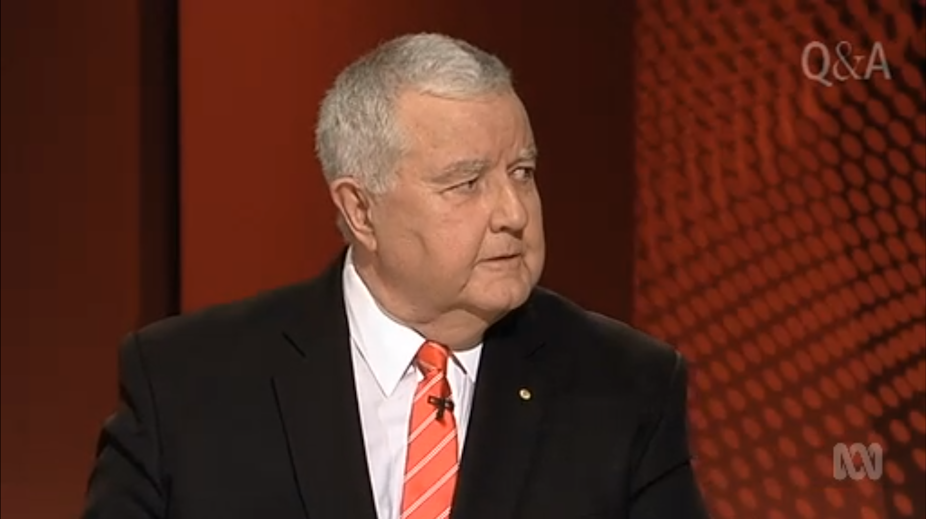Australia’s chief scientist Ian Chubb appeared on the first all-science Q&A panel on the ABC last night with Suzanne Cory, Peter Doherty, Brian Schmidt and Marita Cheng. Here he outlines a disconnect between Australian research and public perceptions of science – but scientists can help bridge that gap.
Each year, I travel to many parts of Australia, making speeches, attending workshops, symposia, conferences and roundtables. It is an opportunity for me to hear first-hand what people think; scientists as well as interested members of the public.
I am also interviewed often by any number of journalists on any number of topics, and meet many people from the business community: all conversations that give me a sense of how science is viewed by those outside it.
It is pretty obvious that there is a gap between the perceptions.
I do think scientists could work harder to engage the broader community and business.
I also think work is required by others to learn and appreciate what scientists actually do.
I do not pretend it is easy. If it were, we would already have managed to change the culture and have reached a better understanding.
Researchers represent the engine room of Australian science, a constant source of new ideas, different ways of thinking and better ways of doing.
Only those closest to them will know the long hours they spend in the laboratory, in the field, in the office and at home, in pursuit of answers.
Researchers work not knowing when or where the big breakthroughs will come, or if they will ever come. That does not diminish their persistence and rarely affects their passion in the long term, although it may test their patience from time to time.
The only certainty researchers know is financial uncertainty. This makes personal choices and long-term planning difficult, in some cases impossible.
Yet they do it. They do it, but often struggle to communicate and engage with those who stand to benefit.
And those who do stand to benefit often labour under incorrect assumptions about science; which makes it difficult to separate reality from fiction, especially when those with the loudest megaphones choose to play on that ignorance in the pursuit of their own agenda.
The community might not necessarily see how science impacts their food, their health, their security, their environment and the economy. They might take it for granted and not think about it at all. If they don’t see the science, why would they be expected to care about it? But there is an impact: on all of us, each and every day.
The truth is that both sides need encouragement and support, to talk, to listen and to understand each other.
When he was UK prime minister, Tony Blair told the Royal Society:
the benefits of science will only be exploited through a renewed compact between science and society, based on a proper understanding of what science is trying to achieve.
At a time of year when some scientists are being singled out for prizes, I wonder if it is possible for Australians to develop a more lasting appreciation of the many curious, dedicated and driven scientists they have in this country. Scientists working in their interests.
In return, I wonder if it is possible for those scientists to always remember why they do what they do. And to feel more comfortable about explaining that in forums outside their own comfort zone.
As I said on the ABC’s Q&A program last night, the way in which we express the awesomeness of science is far too muted. Scientists need to add patience and persistence to their passion to bring the community along with them.

